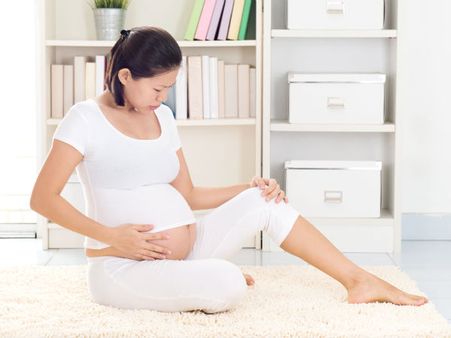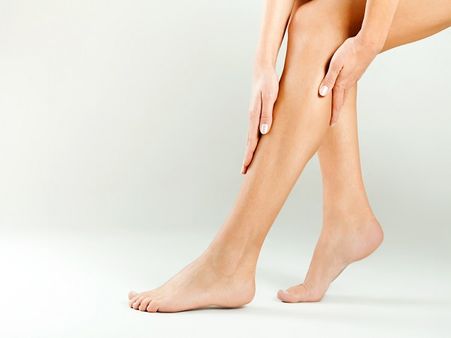Just In
- 16 min ago

- 2 hrs ago

- 10 hrs ago

- 10 hrs ago

Don't Miss
- Movies
 Paarijatha Parvam Full Movie Leaked Online In HD For Free Download Hours After Its Theatrical Release
Paarijatha Parvam Full Movie Leaked Online In HD For Free Download Hours After Its Theatrical Release - Technology
 itel S24 With 108MP AI Dual Camera India Launch Confirmed; Amazon Microsite Goes Live
itel S24 With 108MP AI Dual Camera India Launch Confirmed; Amazon Microsite Goes Live - Finance
 Daily Relative Strength Index RSI In A Bullish Mode of This Pharma Stock; Buy For TP Rs 635-685
Daily Relative Strength Index RSI In A Bullish Mode of This Pharma Stock; Buy For TP Rs 635-685 - News
 Indonesian Volcano Spews Clouds Of Ash, Authorities Evacuate Over 2,100 People
Indonesian Volcano Spews Clouds Of Ash, Authorities Evacuate Over 2,100 People - Sports
 RCB Green Jersey Match: Record And Stats Ahead of KKR Meeting in IPL 2024
RCB Green Jersey Match: Record And Stats Ahead of KKR Meeting in IPL 2024 - Automobiles
 Mahindra XUV 3XO SUV – Everything We Know So Far
Mahindra XUV 3XO SUV – Everything We Know So Far - Education
 Exam Pressure Does Not Exist; Studying Punctually is Crucial; Says Aditi, the PSEB 2024 Topper
Exam Pressure Does Not Exist; Studying Punctually is Crucial; Says Aditi, the PSEB 2024 Topper - Travel
 Journey From Delhi To Ooty: Top Transport Options And Attractions
Journey From Delhi To Ooty: Top Transport Options And Attractions
What Causes Varicose Veins During Pregnancy And How To Prevent It
Pregnancy is a period where a woman's body undergoes a sea of changes. With these changes, comes a sea of complications as well. To make things worse, every woman's pregnancy widely differs from another woman's. So, there is no sure shot way of knowing whether whatever you may be going through is normal or not. In cases like these, we are here to help.
We at Boldsky, bring an array of articles that help you with as much wide and accurate information as possible, in order to make your ordeal easier. In this article, we will be discussing yet another problem faced by women during pregnancy: varicose veins.

It often happens that women may suffer from various problems during their pregnancy, which they may have never faced before in their lifetime. If you are the one who has heard of varicose veins but probably never suffered from it until your pregnancy, this article will provide you with information regarding the causes of varicose veins during pregnancy and how to prevent it.
What Are Varicose Veins?
In order to understand varicose veins, let us briefly look into the functions of veins in particular. The veins in our body are the blood vessels that are responsible for the blood flow from different parts of the body to our heart.
When there is excess pressure on these veins, they enlarge and may bulge out of the skin's surface, which may give them a bluish or purple colour. This condition is commonly known as varicose veins and majorly affects the veins in the legs and feet.
Varicose veins provide mild discomfort but are mainly abhorred by us as they are unsightly. During pregnancy, there is an increase in blood flow to the heart. However, the rate of blood flowing from our legs and pelvis decreases. This puts undue pressure on the veins, causing it to swell.

Causes Of Varicose Veins During Pregnancy
The condition of varicose veins may worsen if you are already suffering from it before your pregnancy. However, not all women suffer from varicose veins during pregnancy, if you did not suffer from the condition previously. But if you have been noticing these blue and purple veins of your legs lately, it is most commonly due to the pressure of your growing uterus.
The veins in your legs are responsible for carrying blood to the heart. During pregnancy, there is an increase in the volume of your blood. But the blood flowing from your legs to the pelvis decreases. While this is designed to help the foetus grow, it results in enlarged veins in the legs.
Another
reason
is
the
growth
of
the
foetus.
The
growing
uterus
puts
extra
pressure
on
the
large
vein
situated
on
the
right
side
of
your
body.
This
in
turns
puts
pressure
on
the
veins
in
your
legs,
resulting
in
their
swelling.
This
means
that
this
condition
will
worsen
as
and
when
your
weight
increases
or
if
you
are
carrying
twins
or
more.
Varicose
veins
during
pregnancy
are
also
caused
due
to
the
increase
in
the
production
of
progesterone,
which
relaxes
the
walls
of
your
blood
vessels,
causing
them
to
swell.

Can Varicose Veins Burst?
With so much pressure on the varicose veins, it is common to wonder if they can suddenly rupture. But our bodies are designed to take care of such issues during pregnancy. Varicose veins in the legs are often harmless and do not rupture or cause any serious issues on their own during pregnancy. It is, however, important to manage them in the right way so as to avoid any kind of discomfort to you.
In extreme cases, varicose veins may affect other parts of your body during pregnancy, such as the vulva. Though there are known cases of varicose veins in the vulva rupturing during pregnancy causing bleeding, a small surgery may help treat it, with no effects whatsoever on the delivery process or the baby.

How To Treat Varicose Veins?
Varicose veins are a result or circulatory changes in the body. Though there is not much you can do to treat it, you can certainly do a lot to manage it. Here are some ways in which you can manage varicose veins naturally during pregnancy-
-
Not
enough
emphasis
can
be
laid
on
the
benefits
of
walking
during
pregnancy.
It
works
as
a
miracle
in
managing
varicose
veins
as
well.
It
helps
improve
circulation
and
relieves
the
stress
on
the
veins
of
your
legs.
-
Avoid
crossing
your
legs
while
sitting
as
it
may
further
aggravate
the
condition.
It
is
also
important
not
to
retain
one
particular
position
for
a
long
time
such
as
sitting
or
standing.
Frequent
position
change
will
help
normalise
the
blood
flow.
-
Elevating
your
feet
onto
a
pillow
will
let
gravity
do
the
job
naturally.
-
It
is
important
to
manage
your
weight
during
pregnancy
as
an
increase
in
weight
will
increase
the
pressure
on
your
veins
and
make
it
worse.
-
Compression
socks
or
stockings
may
also
help
manage
the
situation.
These
stockings
are
tight
around
the
ankles
and
gradually
loosen
upwards,
which
makes
it
easier
for
the
blood
to
flow
up.
-
The
easiest
way
to
manage
varicose
veins
is
to
sleep
on
your
left
side.
This
removes
the
pressure
on
the
vein
of
the
leg,
decreasing
the
symptoms
of
varicose
veins.

Complications Of Varicose Veins During Pregnancy
Varicose veins developed during pregnancy may be itchy or hurt a little. But they are usually harmless. They may look unsightly, though. However, there are extreme cases where varicose veins lead to small blood clots near the skin's surface. This may make the veins, redder and painful.
Sometimes, the area around the clot gets infected. One sure shot sign of it is if you develop a fever. Further, one of the legs may swell severely or the skin around the veins changes colour. This is the time when you have to visit the doctor to avoid further complications.
Normal cases of varicose veins developed during pregnancy may need no treatment at all. It is advised you manage the condition by any of the methods mentioned above. The symptoms usually subside after three to four months of delivery.
-
 disorders cureVaricose Veins: Causes, Symptoms, Diagnosis And Treatment
disorders cureVaricose Veins: Causes, Symptoms, Diagnosis And Treatment -
 disorders cureTaapsee Pannu Got Varicose Veins Removed: Natural Remedies To Treat It
disorders cureTaapsee Pannu Got Varicose Veins Removed: Natural Remedies To Treat It -
 disorders cureIncredible Ingredient To Cure Varicose Veins!
disorders cureIncredible Ingredient To Cure Varicose Veins! -
 wellnessMagical Home Remedy To Reduce Varicose Veins In A Month
wellnessMagical Home Remedy To Reduce Varicose Veins In A Month -
 wellnessWhat Causes Spider Veins?
wellnessWhat Causes Spider Veins? -
 disorders cureAre Varicose Veins Troubling You A Lot? Here Are 15 Herbal Remedies You Can Try
disorders cureAre Varicose Veins Troubling You A Lot? Here Are 15 Herbal Remedies You Can Try -
 wellnessAmazing Health Benefits of Gotu Kola Leaf
wellnessAmazing Health Benefits of Gotu Kola Leaf -
 wellnessPainful Varicose Veins Treatment
wellnessPainful Varicose Veins Treatment -
 prenatalDeep Vein Thrombosis During Pregnancy
prenatalDeep Vein Thrombosis During Pregnancy -
 healthSolar Eclipse 2024: Dos and Don'ts for Pregnant Women During Surya Grahan
healthSolar Eclipse 2024: Dos and Don'ts for Pregnant Women During Surya Grahan -
 healthLunar Eclipse 2024: Dos And Don'ts For Pregnant Woman During Chandra Grahan
healthLunar Eclipse 2024: Dos And Don'ts For Pregnant Woman During Chandra Grahan -
 fashionDeepika Padukone-Ranveer Singh Announce Pregnancy: 6 Maternity Outfit Ideas For The Modern Mom-to-Be
fashionDeepika Padukone-Ranveer Singh Announce Pregnancy: 6 Maternity Outfit Ideas For The Modern Mom-to-Be


 Click it and Unblock the Notifications
Click it and Unblock the Notifications



